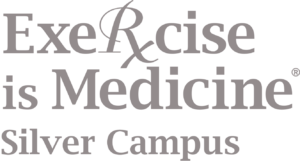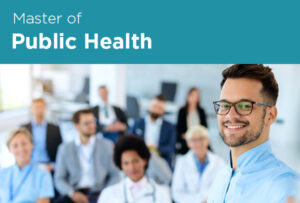As an Exercise Science major, you’ll be prepared to enter a multitude of health-related careers and also pursue certifications offered by major sports medicine organizations.
What is Exercise Science?
Exercise Science is a discipline that describes and assesses the acute and chronic effects of physical activity and exercise on the human body. In this program, students will acquire the theoretical knowledge and the practical skills to evaluate, prescribe, and instruct both individual and group exercise for those who are apparently healthy and those with controlled diseases.
The Exercise Science program at NCWU is only 1 of 4 programs in the state of NC and 1 of only 99 in the nation to be accredited by the Commission on Accreditation of Allied Health Education Programs (CAAHEP). In the most recent program outcome measure for the 2022-2023 academic year, the graduation rate in the EXS Program was 94% and the graduate satisfaction rate, for the sixth year in a row was 100%. With the help of the Health and Movement Science Club, NCWU is recognized as an Exercise is Medicine (EIM) campus.
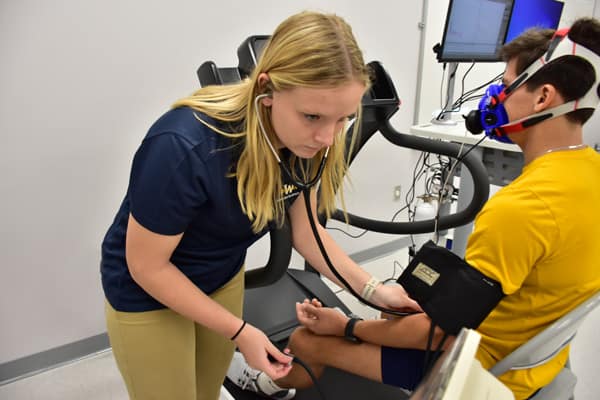
You will learn from world-renowned and accomplished faculty that mentor students through the latest guidelines and standards, and practical applications in exercise science.
The Exercise Program is accredited by:
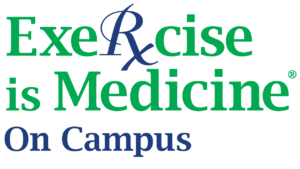
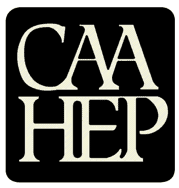
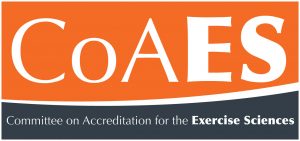
Faculty & Staff
Email any of our advisors with any questions you have about completing this program.
Meir Magal, Ph.D.
Inaugural Souza Professor of Exercise Science/Chair, School of Math and Science/Program Coordinator, Exercise Science
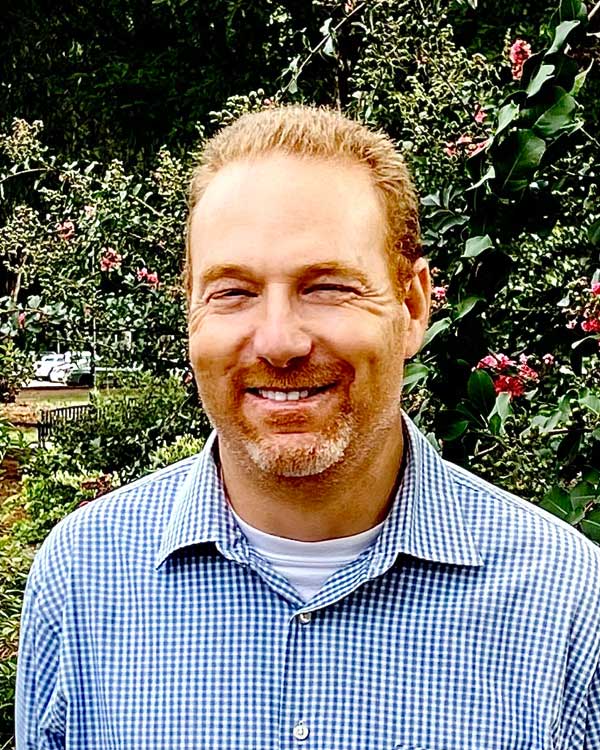
Meir Magal, Ph.D.

Tim Dornemann, Ed.D.
Shannon Crowley, Ph.D.
Associate Professor of Public Health, MPH Program Director, Program Coordinator for Health Promotion

Shannon Crowley, Ph.D.
Vanessa Batchelor, M.S.
Visiting Instructor of Exercise Science/Assistant Women's Soccer Coach
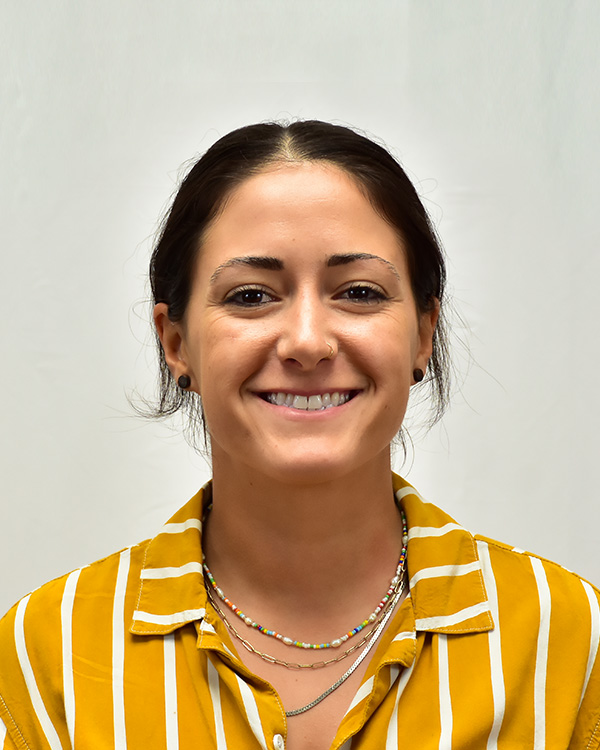
Vanessa Batchelor, M.S.
Continuing Education Opportunities
Complete your Exercise Science degree at NCWU and pursue a graduate degree in athletic training, physical therapy and/or occupational therapy. Get the information you need to know including requirements and prerequisites before applying to any graduate program.
Exercise Science Program Overview
The Exercise Science program mission is to prepare students for future employment in the fitness, health, & human performance industries. Students enrolled in the exercise science major will acquire the theoretical knowledge and the practical skills to evaluate, prescribe, and instruct both individual and group exercise for those who are apparently healthy and those with controlled disease. Students who complete the Exercise Science program are academically prepared to pursue National Commission for Certifying Agencies (NCCA) accredited certifications from leading organizations such as the American College of Sports Medicine (ACSM), American Council on Exercise (ACE), National Academy of Sports Medicine (NASM) and National Council on Strength and Fitness (NCSF). With additional science classes, students in the Exercise Science program will have the foundational knowledge and skills to prepare them for graduate study in various allied health disciplines.
Students will develop a sound science background and communication and writing skills necessary to apply their knowledge to develop appropriate exercise prescription and practical hands-on situations.
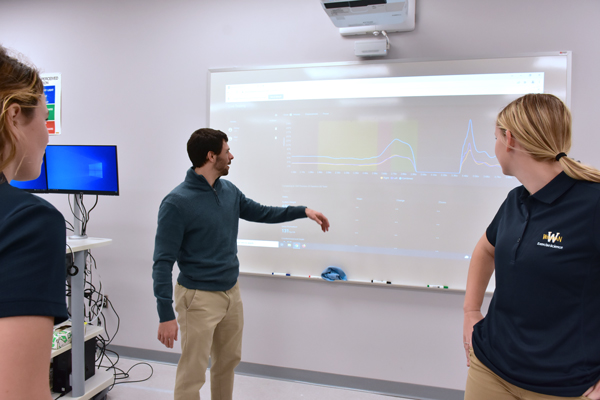
Here are some highlighted courses included in the Exercise Science Major:
EXS 190 – Introduction to Exercise Science
A course designed to help the student define professional goals and assess personal strengths and weaknesses in light of competencies deemed essential for an exercise science career. This course is an overview of professions in the field of exercise science. Objectives include describing various aspects of careers, professional certification and involvement, determining requirements for advanced study and learning the necessary coursework required for a variety of career opportunities.
EXS 214 – Foundations in Wellness and Personal Training
This course is intended to introduce foundational concepts in Exercise Science. The course will examine strength, speed, cardiovascular and flexibility training through the use of foundational concepts related to physiology, anatomy, kinesiology and psychology. Students will learn introductory techniques for appropriate exercise program design, safe exercise technique and the ways to assess physical improvement in clients.
BIO 231 – Anatomy and Physiology I
BIO 231 is the first course in a two-semester sequence that studies the structures and functions of the human body. Topics covered in BIO 231 include chemical, cellular, and tissue levels of organization and the integumentary, skeletal, muscle, and nervous systems. The general and special senses are also discussed. 3 Lecture and 2 Laboratory hours per week.
BIO 232 – Anatomy and Physiology II
BIO 232 is the second course in a two-semester sequence that studies the structures and functions of the human body. Topics covered in BIO 232 include the endocrine, cardiovascular, lymphatic, respiratory, digestive, urinary, and reproductive systems. Themes of metabolism, homeostasis, and development are emphasized throughout.
EXS 318 – Kinesiology and Biomechanics
Analysis of the anatomical, mechanical, neurophysiological and functional aspects of human movement.
EXS 324 – Exercise Physiology
The functioning of the systems in the human body as the body meets the stress of the physical demands placed upon it.
EXS 351 – Principles of Athletic Training
Development of the necessary knowledge and skills to prevent, recognize and manage athletic injuries. Practical application in taping and bandaging.
EXS 430 – Strength and Conditioning
Presents concepts, theories, techniques and research related to designing, implementing and evaluating safe and effective strength, training and conditioning programs.
EXS 450 – Clinical Exercise Physiology I
The course is designed to provide the students with current information concerning exercise testing and prescription of apparently healthy and special populations. Additionally, the physiology and pathophysiology of various vascular and pulmonary disease processes along with their implications on the exercise testing and prescription will also be presented.
Program Goals
- Prepare students to pursue various health-related careers in university, corporate, commercial, hospital, and community settings.
- Prepare students to enter the fitness industry. This may include testing and prescribing exercise for specific age groups such as elderly, children and adolescences as well as apparently healthy and those with controlled disease.
- Prepare student to pursue NCCA accredited certifications as ACSM Certified Exercise Physiologist (ACSM EP-C) and other certifications offered by leading organizations such as ACE, NASM and NCSF.
- Prepares students who are interested in post-graduate study in Exercise Sciences and serve as an option for students interested in completing the prerequisites for admission into a variety of professional programs such as physical therapy, occupational therapy, athletic training, etc.
What are the courses like in Exercise Science at NCWU?
Check out our latest university catalog for learning goals, course descriptions and suggested plans of study for NC Wesleyan University’s Exercise Science Program.
Students in the Exercise Science program will develop a sound science background and communication and writing skills necessary to apply their knowledge to practical hands-on situations. The program also prepares students who are interested in post-graduate study in Exercise Science, and serves as an option for students interested in completing the prerequisites for admission into a variety of graduate and professional programs such as Exercise Physiology, Public Health, Physical Therapy, Occupational Therapy, Athletic Training, etc.
Minor Requirements:
No minor available.
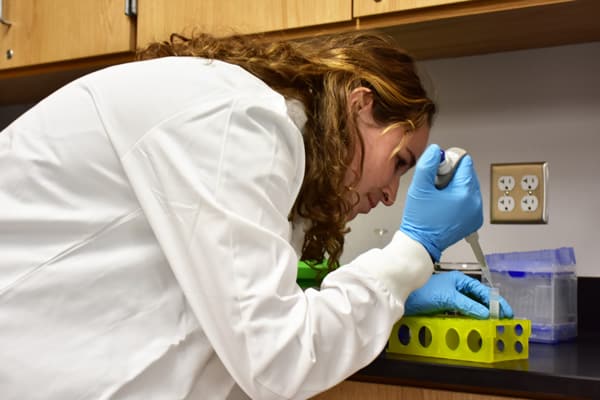
Career Paths for Exercise Science Majors
The Exercise Science Program prepares you to enter a multitude of health-related careers. The program also provides students with the educational background and experiences necessary to pursue a certification such as the ACSM Certified Exercise Physiologist (ACSM EP-C) and other National Commission for Certifying Agencies (NCCA) accredited certifications.
Career Options
- Group Exercise Instructor
- Biomechanist
- Cardiopulmonary Rehabilitation Specialist
- Corporate Fitness/Wellness Director
- Exercise Physiologist
- Strength and Conditioning Coach
- Graduate Degree in Exercise Physiology
Graduate Opportunities
An Exercise Science degree may be used as a stepping stone for graduate education in the pursuit of the following occupations:
- Athletic Trainer
- Medical Doctor
- Occupational Therapist
- Physical Therapist
- Physician Assistant
Learn more about our Master of Science in Athletic Training program partnership at SRU
Wondering what you can do with a degree from NCWU’s Exercise Science major? Check out these resources from NCWU Career Development & Leadership and the Occupational Information Network (O*NET).
Wesleyan is dedicated to assisting students in their professional development offering resources and guidance for hands-on learning experiences through internships, assignments within the courses and job search resources. Let us help you focus on your education and career at the same time!
Applied Learning With Our Community Partners
A major focus of NCWU’s EXS program is to connect students to practical, hands-on experiences in exercise science, by working directly with community partners. In this manner, students have the opportunity to apply the knowledge and skills gained in their EXS courses to “real world” exercise science practice.
NCWU Exercise Science students gain practical hands-on experience, working with the following community partners, as part of their curriculum at NCWU.
- Harrison Family YMCA
- Nash Hospitals Inc.
- Rocky Mount Academy
- City of Rocky Mount Senior Center
- Rocky Mount Parks & Recreation Department
- NCWU Athletic Training
- NCWU Department of Health Services and Student Wellness
- Cora Physical Therapy
- Nash-Rocky Mount Schools
- NCWU Tennis Program
- Goldsboro Physical Therapy and Wellness
- Manual Physical Therapy
- Nash County Schools, Occupational Therapy Programs
Slippery Rock University Articulation Agreement
The NC Wesleyan Exercise Science Program has partnered with Slippery Rock University to offer options that will allow our students the opportunity to transition seamlessly into the Master of Science in Athletic Training program at SRU. This athletic training program provides rigorous academic curricula and a superior hands-on, patient-centered clinical experience. Read entire article – Master of Science in Athletic Training at SRU-An Articulation Agreement.
Health & Movement Science Club
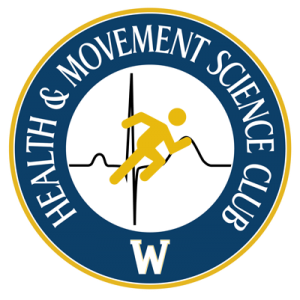
The purpose of the Health & Movement Science Club is to provide students of Exercise Science an opportunity to establish a connection between NCWU and the community of Rocky Mount through fitness & wellness events. This will be achieved by promoting social, academic and professional relationships both on and off campus.
Advisor: Dr. Danielle Braxton, dbraxton@ncwu.edu
NCWU Office of Undergraduate Research
The NCWU Office of Undergraduate Research (OUR) is supports and promotes opportunities for students in all disciplines to engage in advanced inquiry through research, creative, and scholarly experiences. To promote collaboration between faculty members and students, and to enhance professional advancement and life-long learning through research, scholarly, and creative experiences.
Learn about the NCWU Office of Undergraduate Research at ncwcresearch.com.
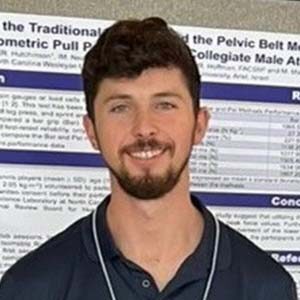
Matan Amitay
2022-2023 EXS Graduate
- ACSM Certified Exercise Physiologist (ACSM-EP) and ACSM Certified Personal Trainer(ACSM-CPT)
- Attending UNCC- Ph.D. in Biology with a Concentration in Kinesiology
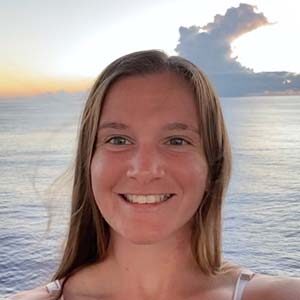
Mariah Berkovich
2022-2023 EXS Graduate
- ACSM Certified Exercise Physiologist (ACSM-EP)
- Attending ODU-Master of Science in Athletic Training (MSAT)
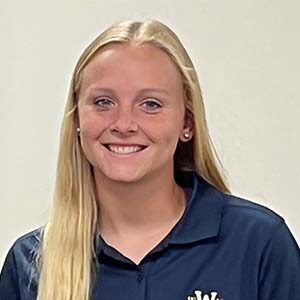
Kelsey Hutchison
2022-2023 EXS Graduate
- ACSM Certified Exercise Physiologist (ACSM-EP)
- Attending UNCCH-Master of Public Health Program at the Gillings School of Global Public Health
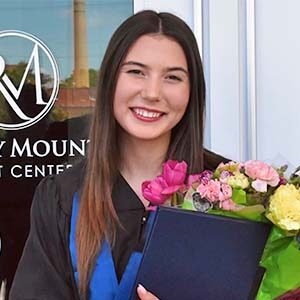
Snejana Spinache
2022-2023 EXS Graduate
- ACSM Certified Exercise Physiologist (ACSM-EP)
- Attending UNCC- Master of Science in Kinesiology with a Concentration in Clinical Exercise Physiology
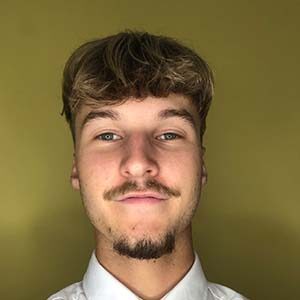
Tristan Vansteene
2022-2023 EXS Graduate
- ACSM Certified Exercise Physiologist (ACSM-EP), ACSM Certified Personal Trainer(ACSM-CPT) and ACSM Certified Group Exercise Instructor (ACSM-GEI)
- Attending the University of Rhode Island- Master of Science in Kinesiology
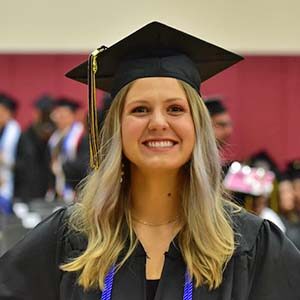
Savannah Chenault
2021-2022 EXS graduate
- ACSM Certified Exercise Physiologist (ACSM-EP) and ACSM Certified Personal Trainer (ACSM-CPT)
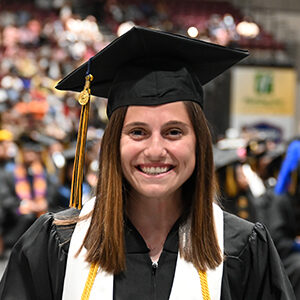
Emily Ketchum, BS
2021-2022 EXS graduate
- Attending Shenandoah University-Doctor of Occupational Therapy (OTD) Program
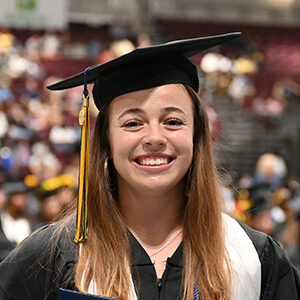
Emily Sullivan, BS
2021-2022 EXS graduate
- American College of Sports Medicine (ACSM) Certified Exercise Physiologist (ACSM-EP)
- Attending UNCW – Master of Science in Athletic Training (MSAT)
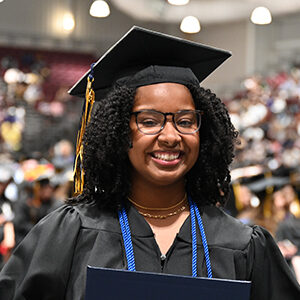
Empris Smith, BS
2021-2022 EXS graduate
- Attending Lynchburg University- Master of Science in Athletic Training (MSAT)
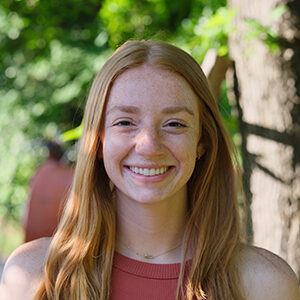
Alissa Avery, BS
2020-2021 EXS Graduate
- American College of Sports Medicine (ACSM) Certified Exercise Physiologist (ACSM-EP)
- Exercise Specialist at Manual Physical Therapy Inc.
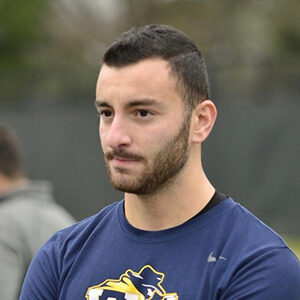
Nadeem Jaber, BS
2020-2021 EXS graduate
- American College of Sports Medicine (ACSM) Certified Exercise Physiologist (ACSM-EP)
- Attending Methodist University- Doctor of Occupational Therapy (OTD) Program
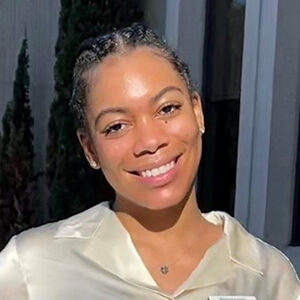
Bryona Knight, BS
2020-2021 EXS graduate
- Attending Baylor University-Doctor of Occupational Therapy (OTD) Program
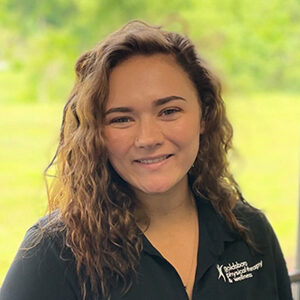
Brittany Moore, BS
2020-2021 EXS Graduate
- American College of Sports Medicine (ACSM) Certified Exercise Physiologist (ACSM-EP)
- Physical Therapy Tech at Goldsboro Physical Therapy & Wellness
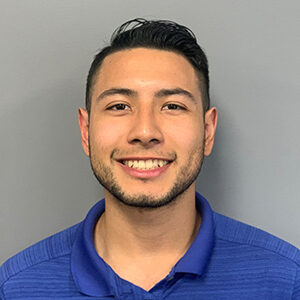
Rolando Valladarez, BS
2020-2021 EXS Graduate
- American College of Sports Medicine (ACSM) Certified Exercise Physiologist (ACSM-EP)
- Attending ECU- Master of Science in Kinesiology
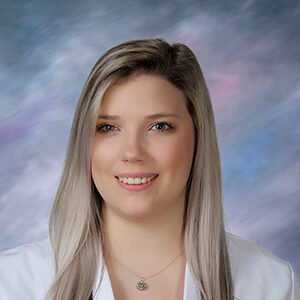
Sarah Western, BS
2019-2020 EXS graduate
- American College of Sports Medicine (ACSM) Certified Exercise Physiologist (ACSM-EP)
- Attending Wingate University-Doctor of Physical Therapy (DPT) Program
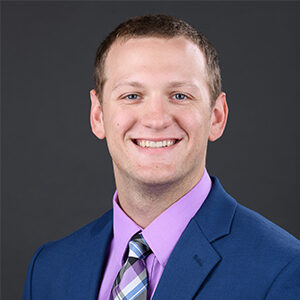
Tyler Ricks, PT, DPT
2018-2019 EXS Graduate
- Attended East Carolina University- Department of Physical Therapy
- Physical Therapist at Goldsboro Physical Therapy and Fitness
24/7 Tutoring Services. Free & Easy.
North Carolina Wesleyan University is partnered with Brainfuse, a complimentary online tutoring service, provided to all Wesleyan students. This service is available 24 hours a day, seven days a week and features live tutoring in the subjects of writing, reading, math, computer and technology, science and business.
Student Organizations
Be engaged at NCWU!
Choose from 30+ student-led clubs and organizations to connect with other students who share your academic interests or… create your own.
Transfer Articulation Agreements
To simplify the transfer process, NC Wesleyan University has a number of partnerships with other community colleges, universities and institutions that allow students to enroll at NCWU with simple pathways. These agreements outline the courses you should take to prepare for transferring to NCWU. Review the full list of transfer articulation agreements to see if your institution is listed.




